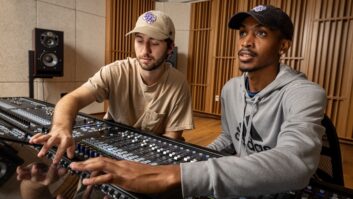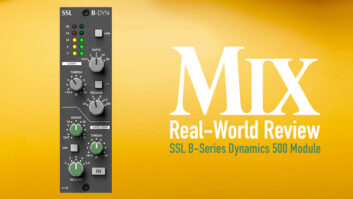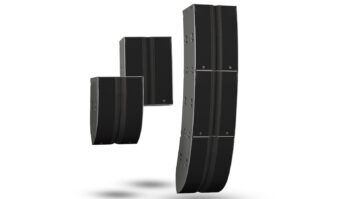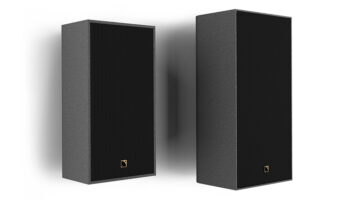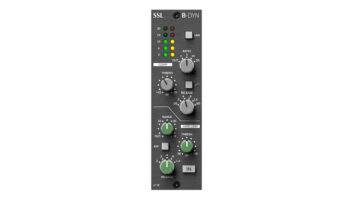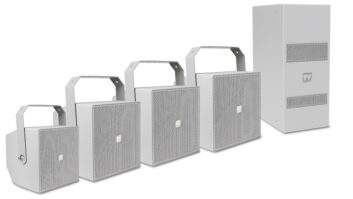On Friday, November 5th, the Wayne State Warriors officially opened their university’s new basketball arena with an inaugural game against the Michigan Wolverines. The new $25 million, 3,000-seat venue is also home to the NBA Detroit Pistons’ G League franchise, the Motor City Cruise, who begin their first season there this fall. All of those teams and the fans who come to see them will experience excellent sound, courtesy of a new L-Acoustics A Series PA system designed and specified by consultancy Idibri and installed by AV integrator Ametek.
Key to the sonic success of this project was keeping sound on the seats and off of the highly reflective hardwood basketball court and venue walls. To accomplish that, the AV design team at Idibri chose L-Acoustics A Series; specifically, eight main arrays aimed at the seating area, each consisting of four A15i (two A15i Wide plus two A15i Focus), powered by a total of eight LA4X amplified controllers. In addition, there is an end-court fill system consisting of two A15i Wide, powered by a single LA4X, and two court-floor fill arrays made up of four A15i Wide each in waterfall configurations for main floor coverage, powered by a pair of LA4X. There are also two hangs of four KS21i subs in a dipole configuration, powered by one LA12X.

“Using the A15i, we can get consistent coverage over the entire seating area, using the Focus’ 10 degrees of vertical dispersion and the Wide’s 30 degrees,” explains Ben Boeshans, senior consultant and lead system designer for Idibri. “The angles they offer off the shelf are exactly what we needed for this project.”
However, what wasn’t off the shelf was how the unique horizontal steering technology of Panflex enabled him to adjust the design literally on the fly when it became clear that a wall close to one side of the arena would be acoustically problematic.
“On one side, the arrays were closer to the wall than on the other, but we were able to adjust the A15, using Panflex steering fins, to have a 90-degree angle of dispersion instead of 110 degrees, keeping the energy off the wall,” he says. “It wasn’t part of the original plan, but it was adjusted in a matter of minutes in the field. It’s a real testament to just how flexible the L-Acoustics systems can be.”

Brendan Dillon, the senior engineer on the project for systems integrator SoundCom Systems, a subsidiary of Ametek, was also impressed with the flexibility of A15 onsite and the precision of its coverage.
“Once we hung a cluster, we connected some temporary cabling and ran pink noise through the boxes to check the connections,” he recalls, noting that the speaker clusters and amplifiers are connected to a QSC Core processor via AES. “I was down on the floor, and you could literally step across the edge of the pattern—the energy stopped precisely where it was supposed to at the edge of the court. I had never heard that kind of ultra-tight pattern control before.”
Flexibility was especially important, he adds, because of how tight the installation scheduling was. “There was only a single lift in the venue, so we had to schedule every aspect of the installation around that,” he says. “The A Series rigging was easy to use and let us pull the install together quickly and efficiently.”

With a bright white court, ceiling esthetics were also an essential factor for success. The venue team requested a PA system to match the ceiling as closely as possible, so the integrator asked L-Acoustics to deliver the A15 boxes in white. “Producing custom-colored enclosures requires a little extra time,” Dillon notes. “We structured a schedule for that, and while it was tight, L-Acoustics delivered right on schedule, despite Covid affecting everyone’s delivery schedules.”
The esthetic consideration was particularly important to the school. Matt Tarantine, WSU’s design and construction services project manager, says the new PA system had to bring with it more than simply great sound. “We wanted the new sound system to really say something about the new arena—that this is a state-of-the-art venue with state-of-the-art sound,” he explains. “But, at the same time, it couldn’t stand out too starkly from the rest of the infrastructure.” In other words, it had to walk a pretty fine line: look as good as it sounded, but without drawing attention to itself, while still letting people see that Wayne State had invested in a cutting-edge sound system. The L-Acoustics A Series does exactly that.
“It can knock the roof off of the arena if you need it to, especially the low end,” says Tarantine, who has been listening to the system throughout its installation and in different parts of the building, noting how well the sound holds together, even around corners. “But visually, it blends in so nicely. Let’s say it really makes its presence felt.”
Dillon brings up other key advantages of the L-Acoustics system: the Soundvision 3D modeling file was quickly imported into LA Network Manager and used to configure the entire system before calibration. L-Acoustics offers robust Q-SYS plugins for its amplified controllers enabling full control, monitoring, diagnostics, and configuration recall directly from within Q-SYS to support the Q-SYS ecosystem. This dramatically simplifies the user experience, allowing contractors to consolidate control and monitoring to a single software platform.
“We just dropped the files into the Core and they integrated seamlessly,” he says, crediting Ametek’s lead programmer, Tyler Smith, for helping to make that happen. “On the QSC touch panel, you can see what any speaker or amplifier is doing and make any changes you want in a matter of minutes, right from the scorer’s table. To have a PA system that sounds this good and is this flexible is pretty amazing.”
For more details on the new Wayne State Arena, visit www.wsuathletics.com. Idibri and Ametek can be found online at www.idibri.com and www.ametek.com.
